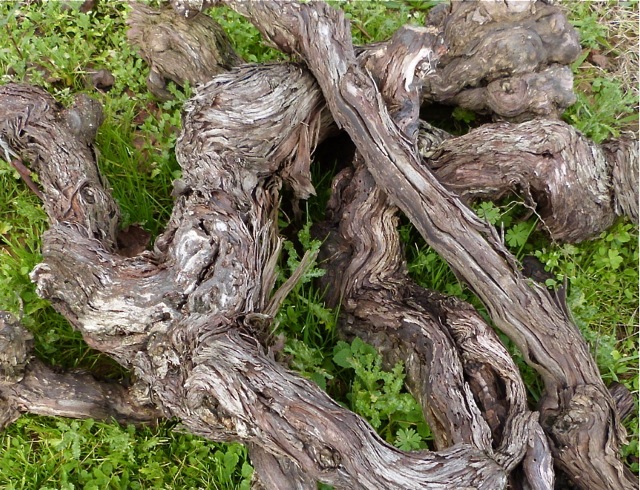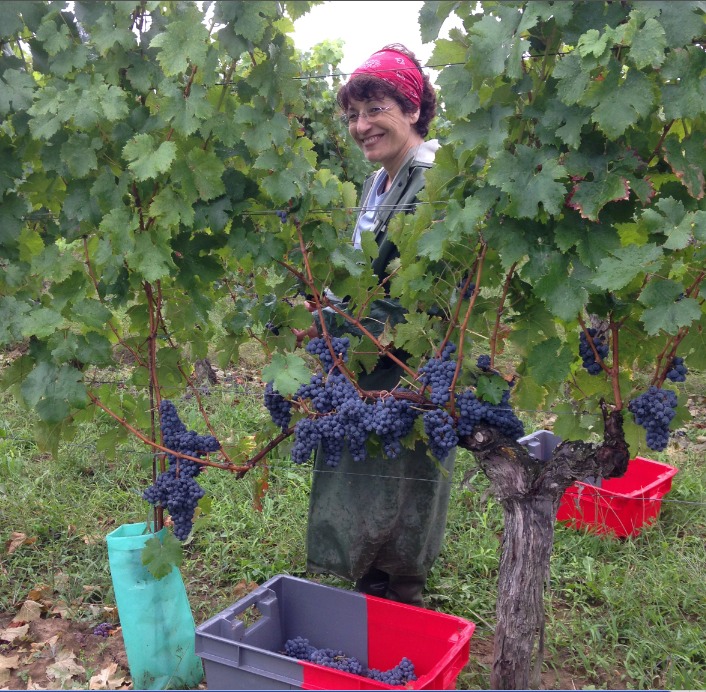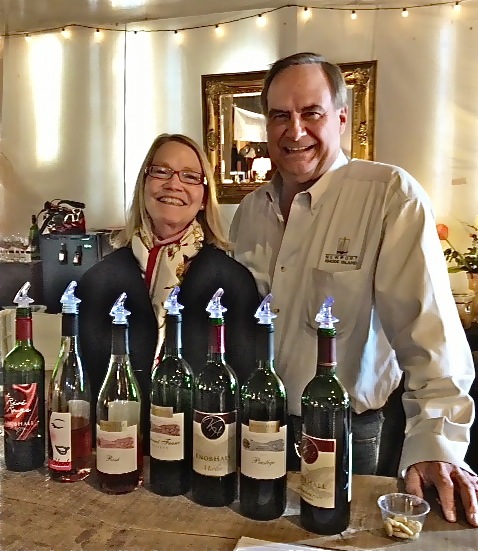 The wagon loads keep coming in and one especially fertile parcel is providing much more fruit than anticipated. Since the farmer estimates volume with idiosyncratic algorithms to translate surface area into potential tonnage, we’re wondering about his apparent back of the envelope advanced calculus. Plus we’re still haunted by the late rains, so the oenologue’s worrying buzzes in our ears: are the berries too juicy? Will the wine be too wet? This leads to a heated debate about “bloodletting” (letting some of the juice run off to improve concentration) and the farmer howls with disapproval. You’d think we were talking about giving away the family jewels.
The wagon loads keep coming in and one especially fertile parcel is providing much more fruit than anticipated. Since the farmer estimates volume with idiosyncratic algorithms to translate surface area into potential tonnage, we’re wondering about his apparent back of the envelope advanced calculus. Plus we’re still haunted by the late rains, so the oenologue’s worrying buzzes in our ears: are the berries too juicy? Will the wine be too wet? This leads to a heated debate about “bloodletting” (letting some of the juice run off to improve concentration) and the farmer howls with disapproval. You’d think we were talking about giving away the family jewels.
 Safer to get back to the mounting pile of skeleton stems, density checks and temperature controls.. The grapes will begin
Safer to get back to the mounting pile of skeleton stems, density checks and temperature controls.. The grapes will begin  fermenting right away causing the temperature to rise. But for this first fermentation when the sugar is transformed into alcohol, we’ve been advised to take it slowly, so we monitor the cooling element carefully.
fermenting right away causing the temperature to rise. But for this first fermentation when the sugar is transformed into alcohol, we’ve been advised to take it slowly, so we monitor the cooling element carefully.
A string of neighbors drop by to offer help and good wishes; this “winery” was a cow barn just last June and they gape as if it’s a sort of daft, local miracle. They bend our ears with cheerful gossip about winemaking failures. Mostly they remind us of a very well kept secret: that the grapes on this plateau can rival those in St Emilion. Mais bien sur!
Before we know it, the last load has come in and our tank is stuffed to bursting. Fatigue and hunger send us to the “petite maison” (yet another renovated barn) where we’ve thrown together a traditional lunch of roast pork and garden greens and apple and quince sauce from our orchard. I’m so sad the farmer couldn’t come, but he had another 6 hours of harvesting for a friend, so he grabbed a sandwich (sacrilege) and hopped back on his machine. Over lunch we talk about village history and Wilfrid tells us a story about the World War II mayor who discovered that a Jewish girl from a farming family had suddenly been taken off to the concentration camps. The mayor dressed up in his best, drove for hours to the station, walked right past the guards onto the train, pulled the girl off and brought her back home. This man still lives up the hill, he’s now 101 years old! We raise a glass as Wilfrid reminds us that our families have known each other since the grandparents’ days. Then he offers a toast to the first time in 80 years that we are making family wine on the family land again.
our orchard. I’m so sad the farmer couldn’t come, but he had another 6 hours of harvesting for a friend, so he grabbed a sandwich (sacrilege) and hopped back on his machine. Over lunch we talk about village history and Wilfrid tells us a story about the World War II mayor who discovered that a Jewish girl from a farming family had suddenly been taken off to the concentration camps. The mayor dressed up in his best, drove for hours to the station, walked right past the guards onto the train, pulled the girl off and brought her back home. This man still lives up the hill, he’s now 101 years old! We raise a glass as Wilfrid reminds us that our families have known each other since the grandparents’ days. Then he offers a toast to the first time in 80 years that we are making family wine on the family land again.
 The day is far from over so I pack some fresh figs from the garden for afternoon goûter and we head back to work. It’s a big moment when we close up the cuve.
The day is far from over so I pack some fresh figs from the garden for afternoon goûter and we head back to work. It’s a big moment when we close up the cuve. 
By the end of the day we’re ready for our first tasting, and obviously, there’s a handy spigot right on the tank.
 Of course, she’s the sweetest baby ever. As we gaze and sip Wilfrid muses: “Hold this pink color in your mind, because you won’t see it again until next year.”
Of course, she’s the sweetest baby ever. As we gaze and sip Wilfrid muses: “Hold this pink color in your mind, because you won’t see it again until next year.”
Yikes. How can he think about next year, already?




